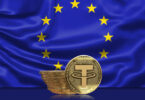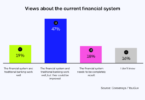On Friday Iceland-based Monerium announced it has raised seed funding of $2 million led by Crowberry Capital and including ConsenSys and Hof Holdings. The company aims to issue regulated, asset-backed e-money on the Ethereum blockchain. Others call this a stable coin.
The ConsenSys investment is facilitated by Coven the new co-venturing initiative. Last month the blockchain venture studio announced a significant belt-tightening following Ether’s declining value. ConsenSys venture Trustology also announced an external round of funding.
Sveinn Valfells, CEO of Monerium, commented that “Monerium has a clear vision to bridge fiat money and blockchains”. The company has applied to become a licensed financial services company. Valfells continued: “It was when working with ConsenSys shortly after the launch of Ethereum, that we first identified e-money as a key catalyst for mainstream blockchain adoption.” Members of the founding team were involved with Ethereum at the pre-sale stage.
Iceland legacy
Iceland was one of the jurisdictions hardest hit by the 2008 global financial crisis. And many of the Monerium team participated in the post-2008 rebuilding process. Hence this venture is one where decentralization is a core aim.
E-money and stable coins certainly have utility. But one question is whether an asset-backed stable coin can be genuinely decentralized. After all the asset backing will be sitting in one or more bank accounts. Whether those accounts are at commercial or central banks, it involves participating in that centralized system. What’s more, the commercial banks can leverage the deposits.
Jón Helgi Egilsson, chairman of Monerium and former chairman of the Central Bank of Iceland gave his perspective. “In Iceland in 2008, a centralized financial system collapsed and almost caused a systemic economic meltdown. The ‘too-big-to-fail’ banking institutions were a single point of failure for deposits, lending, and payments,” said Egillson.
“When compared to blockchains, the centralized banks which caused the crisis, are rooted in opposite philosophies of how we organize institutions and societies. They represent different worldviews and different risks to customers, investors, and society.”
“Despite what happened in 2008, global finance is still largely dependent on centralized institutions and systems, and there remains a distinct lack of competition. We believe the solution is to bring about greater decentralization.”
“By becoming an asset-backed, regulated, and redeemable e-money provider for blockchains, Monerium will help to decentralize global finance, which will offer customers more options to store and send e-money, while simultaneously supporting financial stability.”






